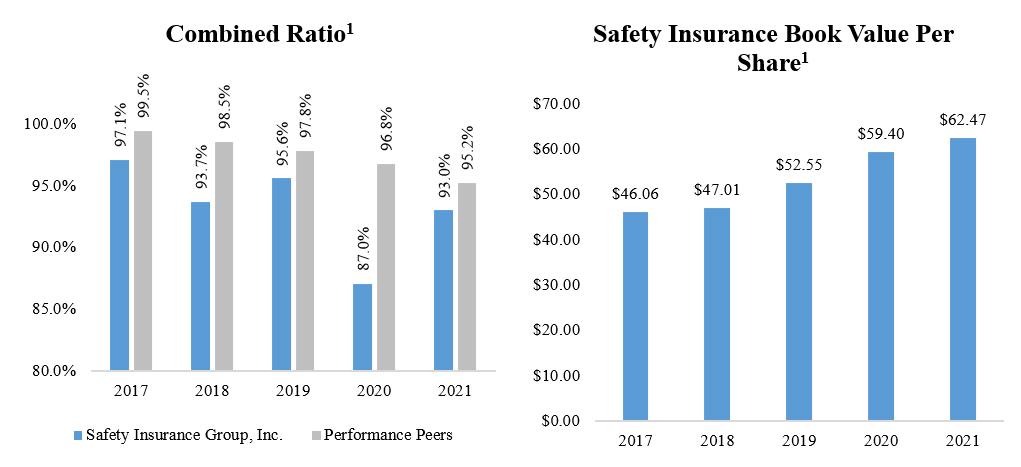
PRELIMINARY PROXY STATEMENT – SUBJECT TO COMPLETION
SAFETY INSURANCE GROUP, INC.
20 Custom House Street, Boston, Massachusetts 02110
| April [•], 2022 |
To Our Stockholders: | |
I am pleased to invite you to attend the 2022 Annual Meeting of Stockholders of Safety Insurance Group, Inc. (the “2022 Annual Meeting”), which will be held at [•], at our headquarters, 20 Custom House Street, Boston, Massachusetts 02110. While attendance in person will be permitted, stockholders will be able to listen to a live teleconference of the meeting by dialing in at (866) 295-5205. The participation code for the meeting is 9510600. We will be taking questions from Stockholders only in advance of the meeting to reduce the risk of technology problems. If you have questions, please email them to InvestorRelations@SafetyInsurance.com by [•].
Included with this letter are the Notice of Annual Meeting of Stockholders, a proxy statement detailing the business to be conducted at the Annual Meeting and a White proxy card.
The matters to be voted on at the 2022 Annual Meeting are:
(i) the election of two directors;
(ii) the ratification, on an advisory (non-binding) basis, of the appointment of Deloitte & Touche LLP as our independent registered public accounting firm for 2022;
(iii) the approval, on an advisory (non-binding) basis, of our named executive officer compensation;
(iv) the approval of an amendment to our Amended and Restated Certificate of Incorporation (the “Certificate”) and Amended and Restated Bylaws (the “Bylaws”) to allow stockholders the right to call a special meetings of stockholders;
(v) the approval of an amendment to the Certificate to allow stockholders to act by written consent;
(vi) the approval of an amendment to the Certificate to replace the supermajority voting requirement contained therein with a majority voting requirement,
(vii) the approval of the amended terms of the 2018 Long-Term Incentive Plan, and
(viii) to transact such other business as may properly come before the meeting or any adjournment or any postponement thereof.
Our board of directors (our “Board”) recommends that you vote in accordance with our Board’s recommendation on each of these proposals using the enclosed WHITE proxy card. Your vote will be especially important this year because Ides Capital Partners Master Fund, Ltd. (“Ides”) has notified us that they intend to nominate two candidates for election at the 2022 Annual Meeting.








